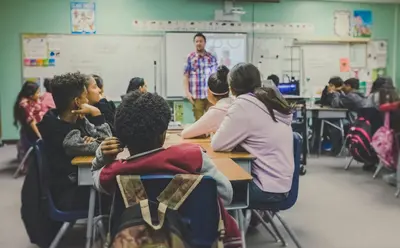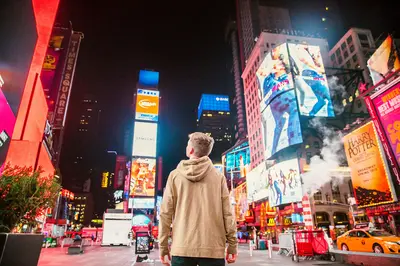Communication to policy-makers and civil society

EARLY POLICY BRIEFING
Policies for education
Taking for granted what is in no way granted for students, schools send implicit messages that leave a deep imprint on young people, modelling a relationship with others, their time, themselves and society that is dysfunctional for their happiness and their learning. Why does the education system choose to transmit these implicit messages? The reasons lie in a series of beliefs contrary to the evidence. The conclusion is that schooling has severe planning defects. Fortunately successful alternatives have been experienced. They rely on including students in decision-making, cooperation, and linking learning with intrinsic motivations such as interest, curiosity, pleasure and discovery. Northern European education systems are definitely heading in that direction. They achieve high levels of academic achievements where students are less stressed, anxious and unhappy and more creative and cooperative.

Urban Planning
We explore the profile of a happy city and a sustainable city. This inquiry is important for understanding whether there exists conflict between sustainability and happiness. The answers demonstrate that the two profiles overlap. A city with public transport and bicycles, full of walkable, mixed-use neighbourhoods, abundant vegetation, spaces for sporting activity and pedestrian areas is both happy and sustainable. An urban project based on the quality of green spaces and public transport promotes relations, and therefore limits energy consumption. It is an environmentally non-aggressive project, because it is not aggressive towards humans. The happy city is sustainable, because it breaks the vicious circle of defensive growth. It is also an inclusive and participated city because improving the quality of what we have in common means democratising urban quality of life. Happy and sustainable cities agree that private cars as an urban transport system is not ideal. Cars are very useful outside cities, but in cities they are only useful if shared, especially at night when public transport is limited or ceases. The conclusion is that it is not necessary for us to give up anything to make our cities sustainable, we simply have to live in them better. The urban lifestyle that makes us unhappy is also very energy-intensive. The urban form prevalent today is a paradigm of defensive growth. This is why contemporary cities are both unhappy and unsustainable.

Work organization
The organization of work in companies in recent decades has evolved towards the following recipe: more competition, more pressure, more controls, more conflicts, more incentives, more stress. This evolution is at the root of the current crisis of distress and disengagement of workers, witnessed by any survey. This trend is dangerous for the long-term economic sustainability of companies. Worker disengagement calls for heavy expenditure on control. With time, workers’ demotivation and distrust destroy cooperation and commitment to the job. Greater profits in the short run undermine long-term profitability and economic sustainability. Indeed, while for a long time in the history of capitalism the reasons for the success of firms depended largely on access to financial capital and technology, we gradually entered a different period in which the destiny of firms depends increasingly on the human factor, i.e. from shifting to organisational models that privilege the quality of persons, starting with their capacity to cooperate and create constructive relationships. Things are changing. A growing number of firms have realised that it is crucial to put the "human question" at the heart of the firm agenda. Such firms adopt organizational models based on limited hierarchy, working groups where small groups of employees are fully responsible for their tasks, promoting work-life balance, good quality human relationships, architecture and work spaces designed to promote relationships, good quality time on the job, respect for employees' rhythms, attention to personal needs, and an emphasis on cooperation and intrinsic motivation rather than on competition between employees and extrinsic motivations.

Policies for healthcare
Large population groups are subject to risk factors for morbidity, such as unhappiness and a lack of intimate and social relationships. There is an abundance of epidemiological literature showing that those who run the highest risk of any kind of illness are those who are most unhappy, alone or with troubled and conflicted relationships. This implies that the prevention of illness should take place largely outside the healthcare system, through policies targeted to improve wellbeing and the quality of social relations in cities, schools and the workplace, and through the media. Such policies offer the best possible prospects for improving health and reducing the demand for healthcare. Another important aspect is to reduce income inequality. Income inequality promotes social comparisons, which is another major risk factor for illness.

Changing advertising
Studies of the effects of advertising on adults conclude that it manipulates values, desires, relationships, choices and behaviour in ways that hinder happiness. We focus on the negative effects of advertising on children, which are even greater. Advertising pressure on kids soared over the past few decades. The reason for this dizzying increase is that advertising directed at children is particularly effective at promoting sales. Mounting marketing targeting children produced an epidemic of materialism among them. Since the 1970s, studies have invariably recorded a relationship between exposure to advertising and materialism among children. As with adults, materialism hinders the happiness and relationships of kids. Children more inclined to materialism are less happy according to many measures of wellbeing and they have worse relationships, including with their parents. To spread its messages, the advertising industry exploits the revolution in how children pass their time. The unprecedented amount of time spent by children looking at screens offers extraordinary opportunities to capture their attention with entertainment on the internet, largely financed by commercial interests. On internet children find the company that our cities no longer offer them. We finally propose advertising regulations, aimed at easing the advertising pressure on young people and its negative effects.

A European Agenda To Navigate Uncertain Times
This joint paper co-issued by the SPES, WISE Horizons, ToBe, WISER, and MERGE projects proposes a policy agenda for the new European Commission to ensure sustainable and inclusive wellbeing. It calls for integrated public and stakeholder support to develop policies that address immediate concerns and secure the future wellbeing of people, aiming for a secure, prosperous, and equitable Europe through forward-thinking policymaking. The paper puts forward concrete suggestions on how the European Commission can advance sustainable and inclusive wellbeing in times of polycrisis. These include strengthening the science-based policy toolkit, reforming the European semester process, as well as implementing policies for 5 societal transformations and 13 policy areas.
